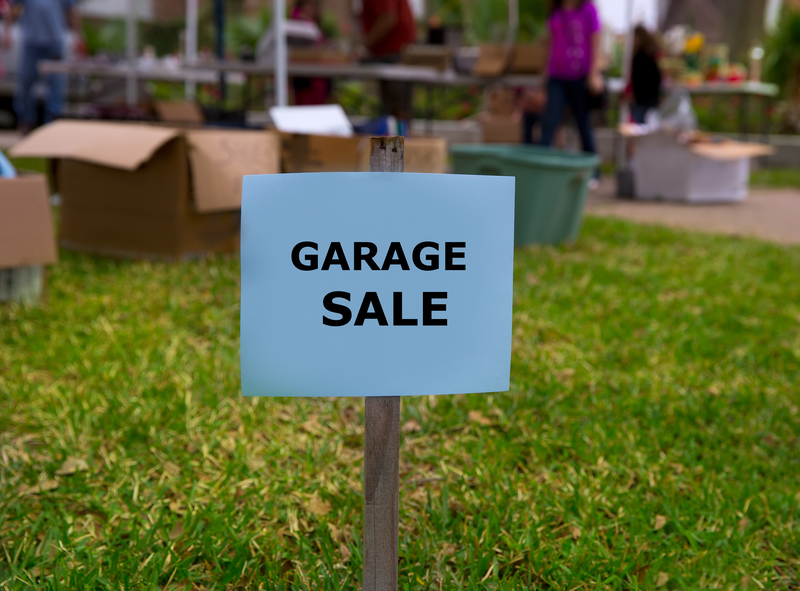Smart Ways to Responsibly Dispose of PPE Waste and Help the Environment
In the wake of the COVID-19 pandemic, personal protective equipment (PPE) waste has surged globally. Items like face masks, gloves, and gowns have become essential for safeguarding our health. However, improper PPE disposal poses serious threats to the environment, wildlife, and public health. This article delves deep into smart, eco-friendly solutions to responsibly dispose of PPE waste, aiming to help you adopt sustainable habits that reduce pollution and foster a healthier planet.

Understanding the Impacts of PPE Waste on the Environment
Every day, millions of single-use masks, gloves, and other PPE items end up in our trash, landfills, streets, and even waterways. Unlike biodegradable materials, most PPE is made from plastics such as polypropylene or polyethylene, which can persist in the environment for hundreds of years. When not disposed of correctly, PPE litter:
- Breaks down into microplastics, contaminating soil and water sources
- Poses choking and entangling hazards to marine and terrestrial wildlife
- Contributes to visual pollution in urban and rural areas
- Possibly carries infectious agents, endangering waste workers and the public
Why is PPE Waste a Unique Challenge?
While plastic pollution from packaging has long been a concern, PPE waste creates a distinct challenge. Due to potential contamination, used PPE often cannot be recycled through conventional plastic recycling systems. This means that innovative, responsible disposal methods are essential to prevent environmental disaster without compromising public health.
Best Practices for Disposing of PPE Waste Responsibly
1. Separate Used PPE from Regular Recyclables
It is crucial to keep used masks, gloves, and other PPE materials apart from household recyclables. Placing contaminated PPE with regular recyclables increases health risks for waste workers and contaminates the recycling stream, making it unsalvageable.
- Designate a specific, lined trash bin for PPE waste.
- Never place used PPE in recycling bins unless your municipality explicitly instructs so.
2. Dispose of PPE in Sealed Bags
To prevent the spread of contaminants and protect sanitation workers, always dispose of used PPE in sealed bags. Double-bagging is especially recommended if the PPE was used by someone who is ill or suspected of infection.
- Seal bags tightly and avoid overfilling to reduce spillage risk.
- Label the bags as "PPE Waste" when possible.
3. Follow Local Guidelines and Collection Systems
Some cities have set up special collection points or bins labeled specifically for PPE, especially at pharmacies, clinics, and supermarkets. Always check with your local authority or waste management provider for PPE disposal protocols.
- Some areas offer 'take-back' schemes or hazardous waste collections for PPE.
- Do not throw PPE in public spaces or street bins where wind and animals can scatter it.
4. Consider Reusable PPE Alternatives
One of the smartest and most effective ways to reduce PPE waste is to limit reliance on single-use products:
- Opt for reusable cloth masks that can be washed and sanitized.
- Consider durable, reusable gloves made of materials like nitrile, with proper cleaning after each use.
- Check for products certified for multiple uses and durability.
By switching to reusable PPE, you not only save money in the long run but also play a significant role in environmental conservation.
Innovative Methods for Eco-Friendly PPE Waste Disposal
1. PPE Recycling Programs and Take-Back Schemes
Some companies and initiatives have launched specialized programs to collect and recycle PPE waste:
- TerraCycle and similar organizations accept PPE items like masks and gloves. They process these items into usable plastic pellets for manufacturing new products.
- Hospitals, clinics, and large institutions can partner with medical waste companies that offer PPE recycling solutions.
- Community recycling events can spread awareness and provide accessible drop-off points for used PPE.
Remember: Never attempt to recycle PPE in your curbside bin unless your municipality has equipped its facilities to do so.
2. Energy Recovery from Incineration
While incineration might seem environmentally unsound, modern waste-to-energy plants use advanced filters and scrubbers to minimize emissions. Instead of piling up in landfills, PPE waste can be burned to generate electricity or heat:
- Incineration at high temperatures destroys pathogens and minimizes the risk of disease transmission.
- Energy recovery ensures the waste is channelled into a productive use, offsetting fossil fuel consumption.
However, incineration should only occur in regulated facilities equipped to handle medical and hazardous waste.
3. Emerging Technologies for PPE Upcycling
Researchers and companies are working on cutting-edge ways to transform PPE waste into valuable resources:
- Converting masks into building materials, such as asphalt additives or construction bricks.
- Developing chemical recycling methods to break down plastics and repurpose them into new goods.
- Exploring compostable PPE options made from plant-based polymers.
These approaches can revolutionize the landscape of PPE waste management in the near future.
How to Dispose of PPE Waste at Home or Work
Safe Steps for Households
- Always remove PPE safely. Take care not to touch the front of masks or gloves when removing--dispose immediately after use.
- Double-bag used PPE. Place in a dedicated, lined trash can out of reach of pets and children.
- Wash hands thoroughly. Sanitize your hands after handling used PPE.
- Check your local council's rules. Some areas offer special collection days for contaminated waste.
Guidance for Workplaces and Institutions
- Provide labeled PPE disposal bins at entry/exit points.
- Train staff on safe removal and handling of used PPE.
- Partner with certified waste contractors. Ensure disposal follows health and environmental regulations.
- Encourage employees to use reusable PPE where safe and feasible.
How You Can Inspire Others: Raising Awareness about Responsible PPE Disposal
Responsible disposal of PPE waste is not only a personal choice but a community responsibility. Spreading awareness among friends, family, and colleagues goes a long way in curbing the problem:
- Share information on social media about the environmental impact of PPE waste and tips for safe disposal.
- Organize local clean-up drives targeting PPE litter in public areas.
- Advocate for your workplace or school to install dedicated PPE bins and follow eco-friendly practices.
Remember, even a single act of responsible PPE disposal can set a positive example and motivate others to follow suit.
PPE Waste Management: What Governments and Industry Can Do
True change involves coordinated efforts between individuals, businesses, and policymakers. Here's how governmental bodies and industry leaders can help solve the PPE waste challenge:
- Provide clear guidelines to the public regarding safe and environmentally friendly PPE disposal methods.
- Invest in and support recycling technology that can process PPE waste safely.
- Promote research and development of biodegradable and compostable PPE alternatives.
- Encourage public-private partnerships to create local PPE waste take-back programs.
- Implement producer responsibility schemes requiring manufacturers to manage end-of-life collection for PPE products.
With collective action, the tide of PPE waste pollution can be reversed.
Sustainable PPE Choices: Prevention is Best
As the old saying goes, "Prevention is better than cure." The most environmentally responsible way to dispose of PPE is to reduce the amount used in the first place where safe and appropriate. Here are practical steps:
- Use reusable cloth masks certified for filtration and washability.
- Choose reusable face shields or goggles that can be sanitized regularly.
- Purchase PPE items made from recyclable or compostable materials when possible.
- Avoid "double masking" or layering gloves unless specifically advised for health reasons.
Most importantly, always follow medical and public health guidelines to maintain both your safety and the planet's well-being.

Frequently Asked Questions (FAQ) about Disposing PPE Waste and Protecting the Environment
-
Can I put used face masks in my home recycling bin?
No. Most home recycling programs do not accept used masks or gloves due to contamination risks and their material composition. Look for specialty PPE recycling programs instead. -
What should I do if I see discarded masks in my neighborhood?
Wear gloves and use a picker tool to collect them. Place them in a sealed bag and dispose of them in your regular trash. Wash your hands thoroughly afterward. -
Are compostable or biodegradable masks a good choice?
These are excellent alternatives if they meet safety standards. Look for certification and proper instructions for compost disposal. -
Is burning PPE waste at home safe?
No. Home incineration can release harmful toxins. Only regulated facilities equipped with filtration systems should incinerate medical waste. -
Does switching to reusable PPE really help the environment?
Yes. Reusable PPE dramatically reduces the amount of waste generated and the demand for single-use plastics.
Conclusion: Take Action for a Cleaner Tomorrow
The explosion of PPE waste poses a major threat to our environment, but simple, strategic actions can make a profound difference. Always separate and seal your used PPE, seek out responsible disposal programs, and, where possible, switch to reusable solutions. By staying informed and spreading awareness, we can collectively reduce PPE litter and help the environment thrive.
Together, let's commit to smart, sustainable PPE practices and ensure that health protection never comes at the environment's expense.
- Choose reusable PPE when possible
- Dispose of single-use items safely and responsibly
- Educate your community
- Support innovative recycling initiatives
Every step you take counts in the mission to responsibly dispose of PPE waste and protect our planet for future generations.